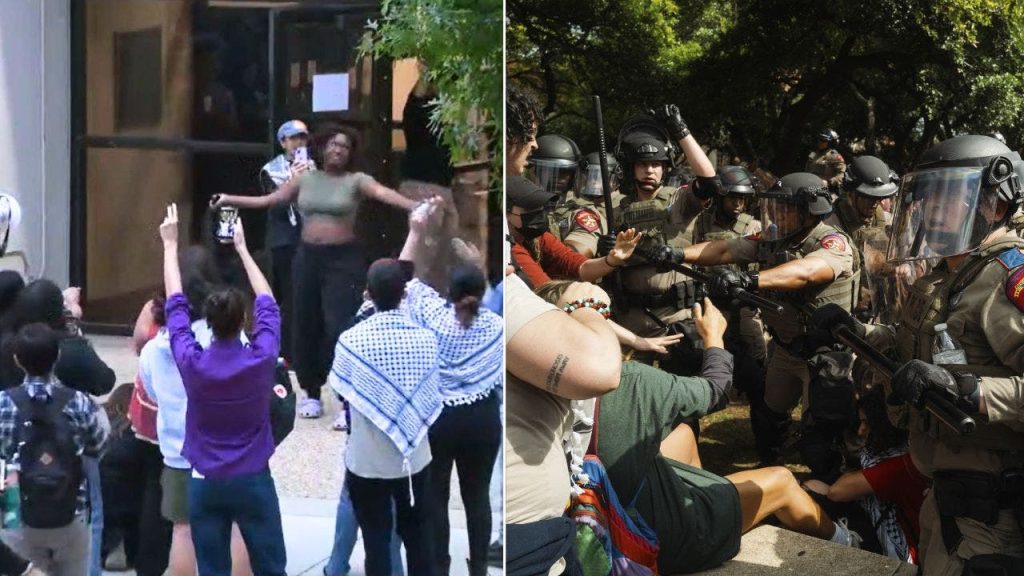Dozens of protesters were arrested at an anti-Israel demonstration at The University of Texas at Austin. Texas Gov. Greg Abbott had called for them to be locked up, but criminal charges were dropped against 46 of those arrested as prosecutors said the charges lacked probable cause. UT Austin said that outside groups had a significant presence at the protest, with more than two dozen of those arrested not affiliated with the college. The protest was organized by the Palestine Solidarity Committee, which seeks to disrupt universities across the country.
Democratic State Rep. Gina Hinojosa refuted Abbott’s claims that the protesters were driven by antisemitism, stating that it was about students opposing a war and their right to gather and protest it. The protest at UT Austin was part of a larger movement calling for divestment from Israeli companies linked to the conflict in Gaza. The Israel-Hamas war has resulted in tens of thousands of civilian Palestinian deaths, sparking international calls for a cease-fire and protests worldwide. University of Texas at Austin President Jay Hartzell defended his decision to shut down the protest, stating that peaceful protests within the rules are acceptable, but breaking rules and disrupting learning is not allowed.
Similar protests have taken place at other universities, including Princeton University and Emory University, where demonstrators were removed by police. At the University of Southern California (USC), a large anti-Israel protest led to 93 arrests, prompting the school to cancel its commencement ceremonies. Abbott had criticized the protesters and called for their expulsion from public colleges and universities in Texas. Students at UT Austin were seen being cheered on as they were released from jail, with some calling Abbott’s comments bait to serve his political ambitions. UT Austin said the protesters intended to disrupt the campus and break institutional rules, consistent with national patterns.
Despite the protests, some colleges have remained firm in enforcing their rules and policies, with Hartzell emphasizing that the university will not be occupied. The protests have been part of a growing movement demanding an end to the conflict between Israel and Hamas. As the war in Gaza continues to escalate and civilian casualties mount, there have been increasing calls for universities to divest from companies linked to the conflict. The situation remains tense on college campuses across the country as students and outside agitators clash with law enforcement over the right to protest and gather in support of various causes.



